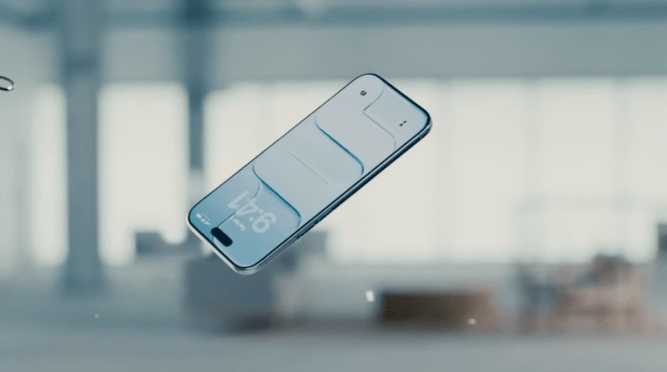Move over, iPhone Plus. Here comes your super-slim replacement: the iPhone Air.
During Apple’s iPhone event on Tuesday, the company unveiled the iPhone Air, its thinnest and lightest model to date. This new model replaces the Plus model in the company’s 2025 lineup, a change that follows the underperformance of the iPhone 16 Plus last year.
The star of the event draws inspiration from Apple’s MacBook Air strategy, which debuted in 2008 as the thinnest laptop available. That product was positioned between the more affordable MacBook and the higher-quality MacBook Pro. Now, Apple is applying the same “Air” concept to the iPhone, emphasizing thinness and lightness as the main selling points.
The device weighs around 145 grams, thanks to its titanium frame, and measures just over 5.5 millimeters thick. This makes it slightly over 2 mm thinner than current iPhones and even thinner than Samsung’s 5.8mm Galaxy S25 Edge. For a better idea of how thin it is, think about four stacked dimes, which total about 5.4 mm.
The phone features a large 6.6-inch display with the same 120Hz ProMotion setup found on the Pro models. It runs on the A19 Pro chip, just like the new Pro and Pro Max models, providing a significant performance boost over the base iPhone 17. It is available in four color options: space black, cloud white, light gold, and light blue.
Rumors of a new, ultra-thin iPhone, potentially named “Air,” first surfaced in 2024. It has been argued that this thinner design will set the standard for all future iPhone models, similar to how the MacBook Air influenced Apple’s entire laptop lineup.
When the MacBook Air first came out, it was praised for being ultraportable at a time when most laptops were heavy and bulky. However, it also received criticism for being too expensive and for having some shortcomings, such as poor connectivity and a slow, small hard drive. Still, the original model set the stage for the 2010 version, which was revamped with improved processors and a more affordable starting price. Since then, the MacBook Air has been Apple’s top seller for more than a decade.
With that history in mind, anyone thinking about buying the iPhone Air should consider whether holding off for later versions with upgrades and better features is a smarter move. For diehard Apple fans, however, it may be worth owning the original model for bragging rights.
Additionally, the slimmer phone could pave the way for a future iPhone that folds, a concept that has been rumored and is predicted to launch around the same time next year. A foldable device would help Apple compete with Samsung and Google, while also helping it regain market share in China, where it has been struggling recently.

